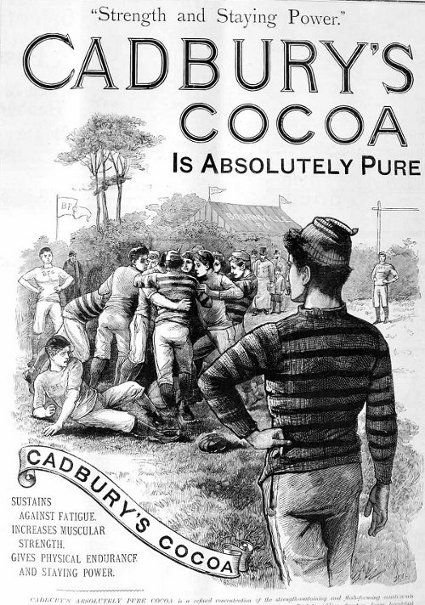
Cadbury was established in Birmingham, England in 1824, by John Cadbury, a Quaker who sold tea, coffee and drinking chocolate. As a Quaker he was barred from University and the Professions, therefore like other Quakers (Fry & Rowntree) went into business.
Part of the reason that Quakers chose the confectionery business was due to matters of conscience. Cocoa and sugar appeared to be ethical alternatives to alcohol, seen as a cause of great moral evil to Quakers of the time. The companies were primed to succeed as Quakers had already built up a reputation for business integrity, thanks to their faith-inspired insistence on fair pricing and paying off debts.

During the Victorian era, the popularity of chocolate catapulted the three Quaker confectioners into public prominence. They experimented with new flavours and styles, and also adopted innovative approaches to business. George and Richard Cadbury chose to build houses, parks and recreation centres in Bourneville, Birmingham so that their workers had comfortable accommodation away from city smog. Quaker employers also pioneered pension schemes and lobbied for improved labour laws.
As you can see their faith had a great impact on their life and work – does our faith impact on our life and work?